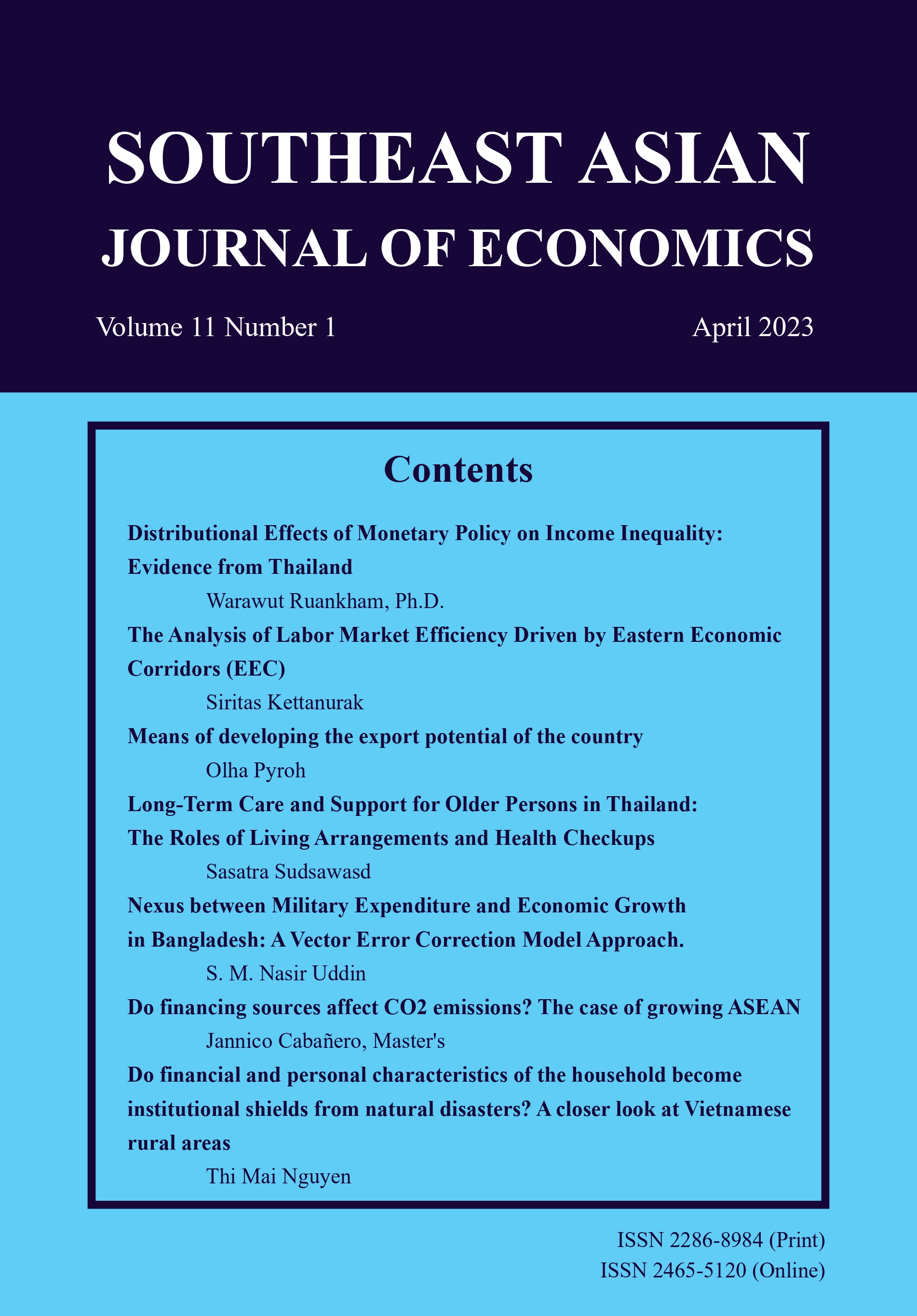Distributional Effects of Monetary Policy on Income Inequality: Evidence from Thailand
Keywords:
distributional effect, monetary policy, income inequality, vector autoregression, ARDL bound testAbstract
This study aims to discuss whether a central bank should have a role in inequality, even if it is beyond the policy objectives’ mandate. We employ the Time-Series Analysis and income inequality dataset from the World Inequality Database to investigate the short- and long-run influence of the expansionary monetary policy on income inequality in Thailand during 1980-2021. Our short-run results demonstrate that expansionary monetary policy leads to GDP growth and decreases income disparity in a certain period, while greater
inflation appears to exacerbate inequality. In the long run, expansionary monetary policy results in higher inflation, cointegrated with the income gap as it increases the income share of the affluent while decreasing the income share of the poor. Besides relying heavily on fiscal policy, our findings encourage the monetary policy in Thailand to take into account the distributional effects when determining long-term monetary policy goals.
Downloads
Published
How to Cite
Issue
Section
License

This work is licensed under a Creative Commons Attribution-NonCommercial-NoDerivatives 4.0 International License.
The submission of a manuscript implies that the paper is an original work and has not been published elsewhere. The author(s) authorize the journal to reproduce or distribute the paper in printed or other electronic forms.







